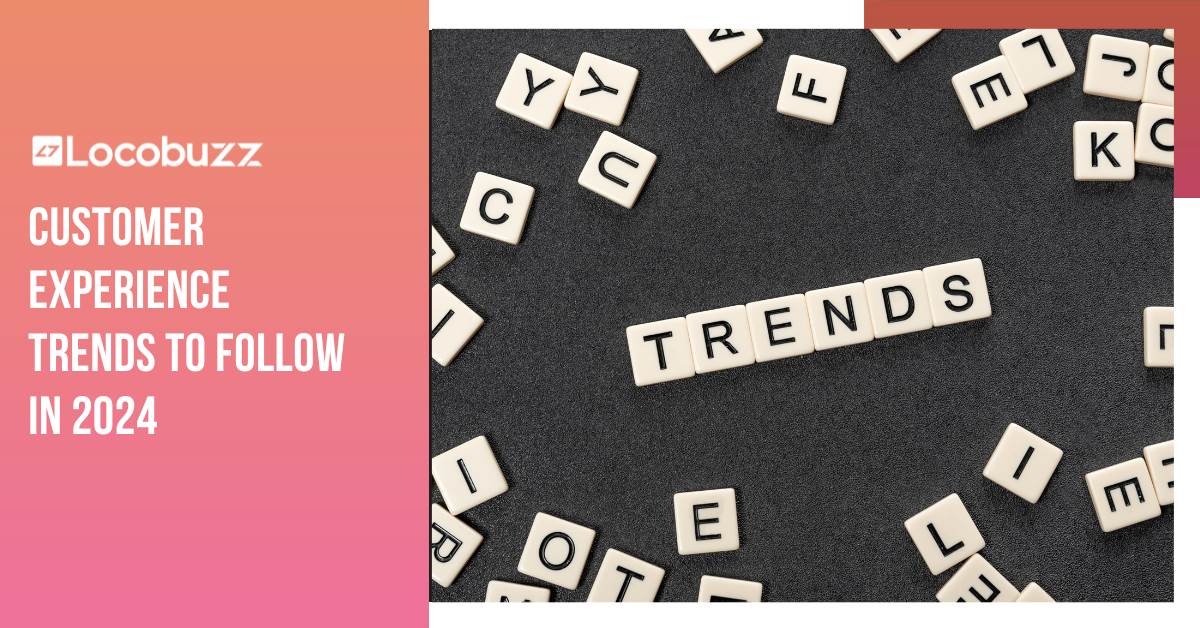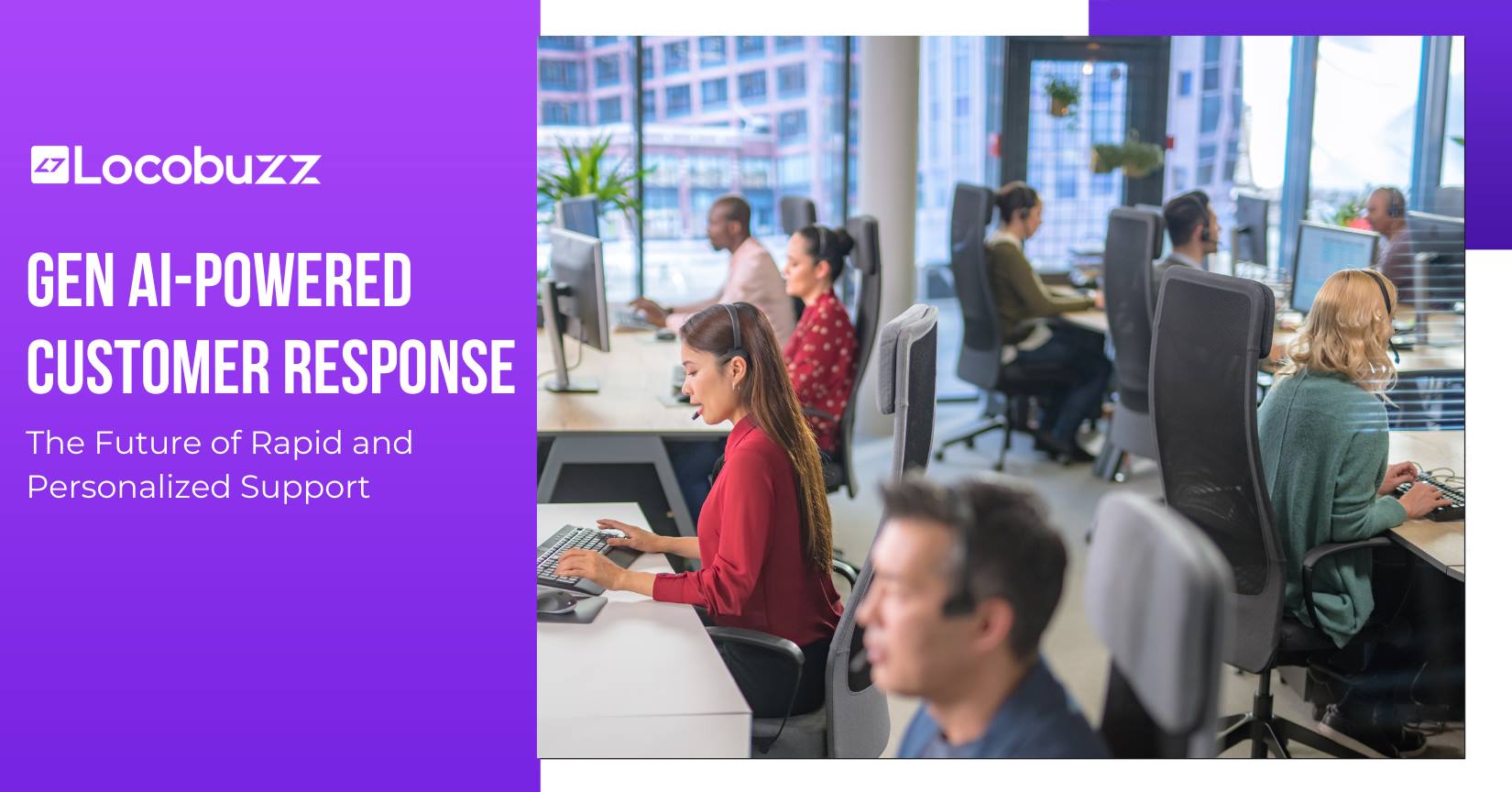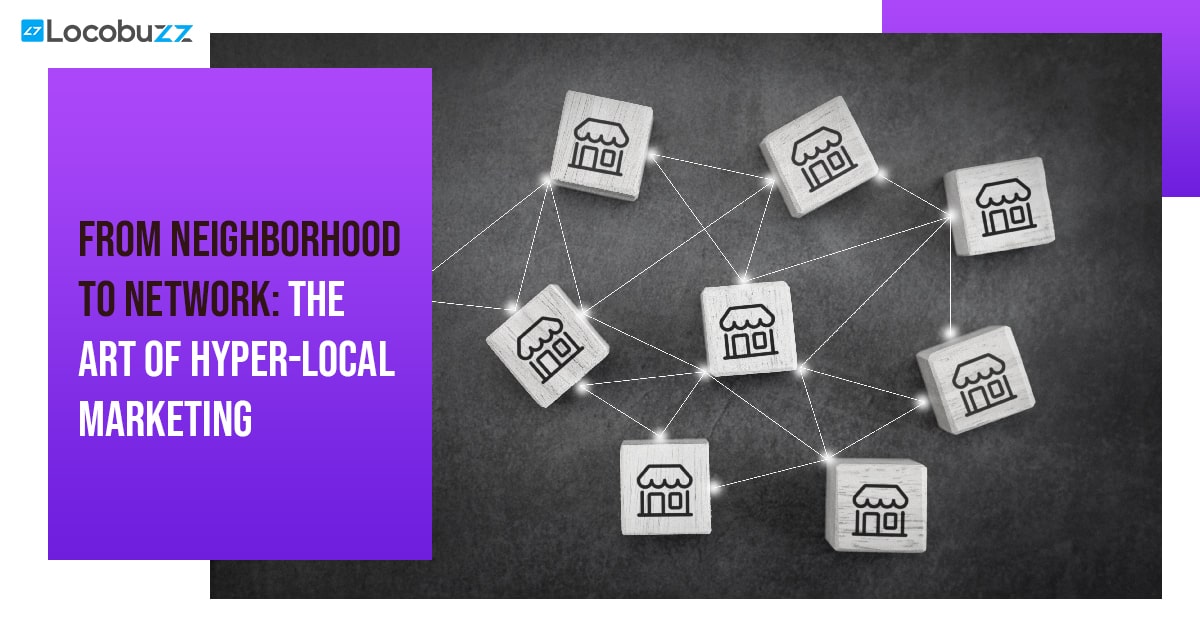Mastering the Art of Social Media Analytics: A Complete Guide
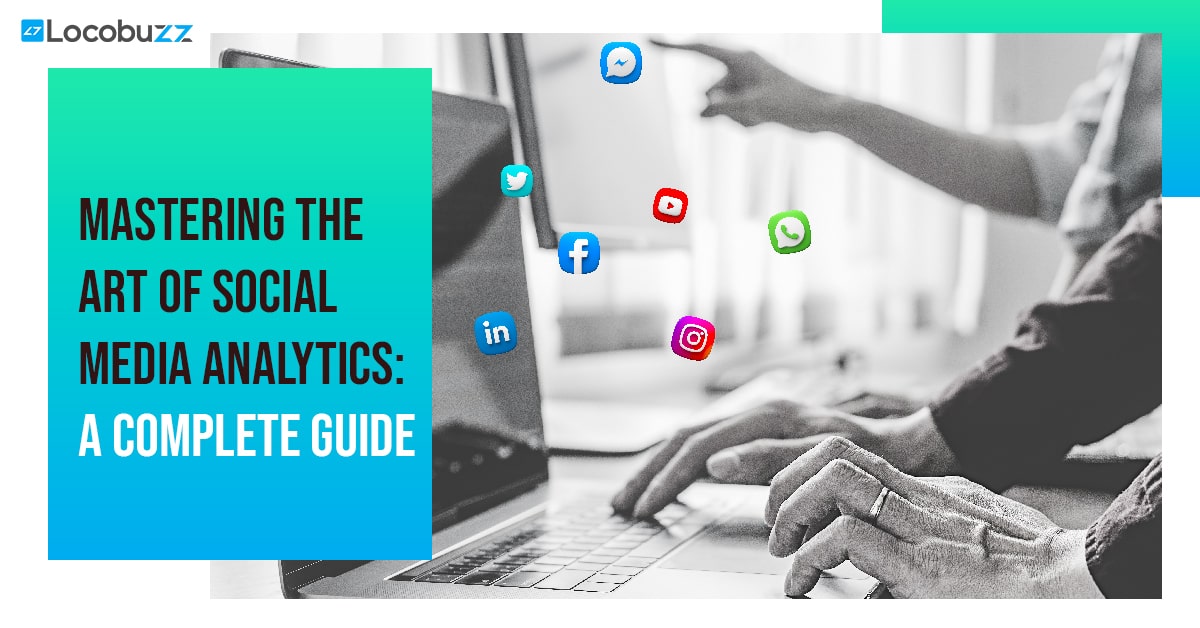
Social media has become an integral part of our daily lives, with billions of people using platforms like Facebook, Twitter, Instagram, and LinkedIn to connect with friends, family, and colleagues, as well as to discover and share content.
This widespread adoption of social media has made it an increasingly valuable tool for businesses looking to engage with their audience and promote their products or services.
One way that businesses can tap into the power of social media is through the use of social media analytics.
By collecting, measuring, and analyzing data from social media platforms, businesses can gain valuable insights into their audience, their competitors, and the effectiveness of their marketing efforts.
In this article, we’ll introduce you to the basics of social media analytics, including what it is, why it’s important, and how you can use it to benefit your business. We’ll also provide some tips and tools to help you get started with your own social media analytics for your business.
Table of Contents
What is social media analytics?
Social media analytics refers to the process of collecting, measuring, and analyzing data from social media platforms to understand and inform business decisions. It involves using tools to extract insights from social media data, such as metrics on user engagement, sentiment, and demographics.
These insights can help businesses improve their social media marketing strategies, identify trends and opportunities, and understand their audience better.
Some common applications of social media analytics include identifying influencers, tracking brand mentions, and measuring the effectiveness of social media campaigns.
Why is Social Media Analytics Important?
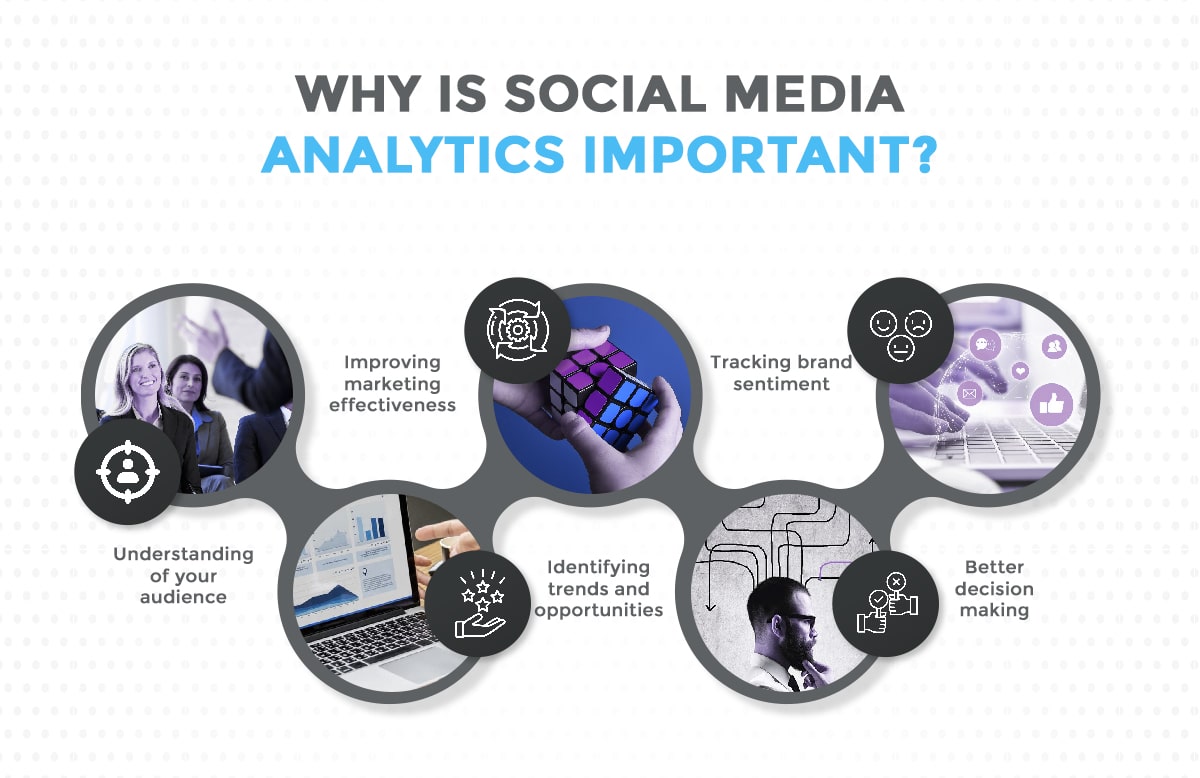
Understanding your audience: Social media analytics can help you understand who your audience is, where they are located, and what their interests and preferences are. This can help you tailor your marketing efforts to better reach and engage with your target audience.
Improving marketing effectiveness: By analyzing metrics such as engagement, reach, and conversion rates, you can determine what types of content and campaigns are most effective at driving desired outcomes, such as website traffic or sales.
Identifying trends and opportunities: Social media analytics can help you identify trends and opportunities in your industry and among your audience. This can inform product development and marketing strategies.
Tracking brand sentiment: Social media analytics can help you track how people are talking about your brand, including any negative sentiment. This can help you address any issues and improve customer satisfaction.
Measuring the return on investment (ROI) of social media marketing efforts is crucial for understanding the effectiveness and value of your social media campaigns.ROI measurement involves analyzing the financial outcomes and benefits derived from social media activities relative to the costs incurred.
By tracking key performance indicators (KPIs) such as engagement metrics, website traffic, lead generation, conversions, and customer acquisition, businesses can gain insights into the impact and value generated through their social media marketing efforts.
Advanced tracking tools and attribution models can help attribute revenue and conversions back to specific social media channels or campaigns, enabling businesses to optimize their strategies, allocate resources effectively, and demonstrate the tangible value of social media in driving business growth.
Overall, social media analytics can help businesses make more informed decisions about their social media marketing efforts, improve their performance, and better understand and engage with their audience.
Key capabilities of effective social media analytics
Key capabilities of effective social media analytics include:
1. Metrics Tracking: Key performance indicators (KPIs) like as engagement, reach, impressions, conversions, and follower growth may be measured and tracked.
2. Sentiment Analysis: Capability to analyse the sentiment underlying social media interactions in order to have a better understanding of public perception and consumer sentiment towards the company.
3. Competitor Analysis: To assess and highlight areas for improvement, provide insights into rivals’ social media strategy, content performance, and audience engagement.
4. Campaign Tracking: Capability to analyse and assess social media campaign efficacy, including hashtag performance, campaign reach, and engagement data.
5. Audience Insights: Offering detailed demographic and psychographic information about the audience, helping businesses better understand and target their social media content.
6. Customizable Reporting: Providing flexible reporting options to generate customized reports and visualizations, enabling clear communication of data and insights to stakeholders.
7. Real-time Monitoring: Real-time monitoring of social media conversations and mentions allows organisations to keep up to date, respond quickly, and discover developing trends or difficulties.
8. Integration with Multiple Platforms: Ability to connect and analyze data from various social media platforms, consolidating insights in a centralized dashboard for streamlined analysis.
9. Data Visualization: Presenting data in a visually appealing and easy-to-understand format, facilitating quick and effective interpretation of analytics results.
10. Actionable Insights: Offering actionable recommendations and insights based on the data analysis, helping businesses optimize their social media strategies and drive meaningful outcomes.
Remember, these are key capabilities, and the specific features and functionalities may vary across different social media analytics tools.
Why social data matters
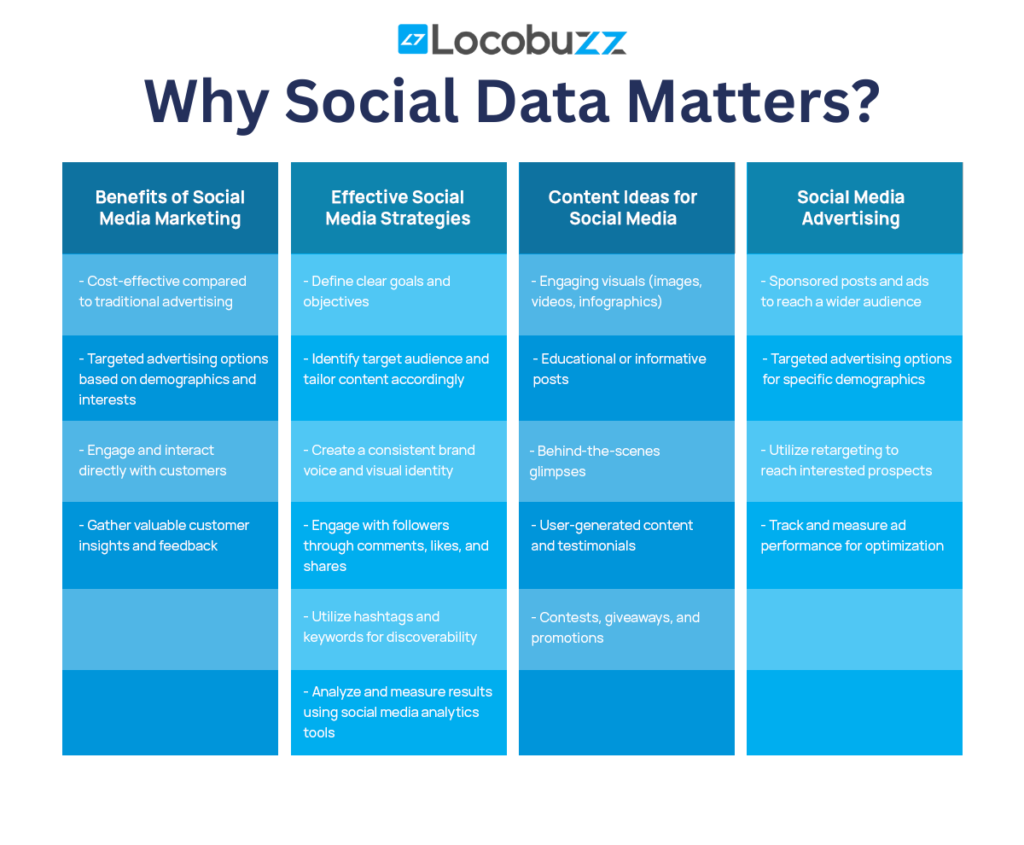
Social Data for any brand comprises all types of content posted by them for their audience and by their users/followers. Here are a few examples of what comes under social data.
- Product launch posts on social media platforms
- Any type of content for feedback and engagement: Posts, quizzes, giveaways, polls
- Feedback on your engagement posts by users: Comments, Q&A, and poll answers
- Audience engagement with content: Likes, subscriptions, follows, memberships, saves, links
- Financial engagement of users: Products bought from social media stores, merchandises, affiliate links, and deals
- Your followers’ most used hashtags on their posts
- Social media activity and engagement hours for your followers
- Your channels growth and AdSense Analytics
These are a few examples from the large pool of social data that affects your brand’s engagement & growth.
Benefits of using social media analytics
Time-saving: Social media analytics tools can help you save time by automating the collection and analysis of social media data.
This can allow you to focus on other tasks, such as creating content and engaging with your audience.
Easier to use: Social media analytics tools often have user-friendly interfaces that make it easy for you to access and analyze data. This can be especially useful for businesses that don’t have in-house expertise in data analysis.
Greater insights: Social media analytics tools can provide a wide range of insights, such as user demographics, engagement, and sentiment, that can help you better understand your audience and the performance of your social media campaigns.
Better decision-making: The insights provided by social media analytics tools can help you make better informed decisions about your social media marketing efforts, such as which platforms to use, what types of content to create, and how to target your audience.
Key Areas to Use Social Media Analytics
Marketing campaigns: By analyzing metrics such as engagement, reach, and conversion rates, businesses can measure the effectiveness of their marketing campaigns and identify areas for improvement.
Customer service: By tracking brand mentions and sentiment, businesses can identify and address customer issues in real-time, improving customer satisfaction and loyalty.
Competitive analysis: By analyzing the social media presence of competitors, businesses can benchmark their own performance and identify opportunities to differentiate themselves in the market.
Tips for selecting the right tool for social media analytics
- Identify your needs: Before selecting a tool, consider what you want to achieve through your social media analytics efforts. Do you want to track brand mentions? Analyze customer sentiment? Identify influencers? Knowing your goals will help you narrow down your options.
- Research different tools: There are many social media analytics tools available, so it’s important to do your research to find the one that best meets your needs. Look for tools that offer the features and metrics that are most relevant to your goals.
- Consider the cost: Social media analytics tools can vary widely in price, so it’s important to consider your budget when selecting a tool. Keep in mind that more expensive tools may offer more advanced features, but they may not be necessary for your needs.
- Test out the tool: Many social media analytics tools offer free trials or demos, so take advantage of these to get a feel for how the tool works and whether it meets your needs.
- Get feedback from others: If you know other businesses that use social media analytics tools, ask them for their recommendations and feedback. This can help you get a sense of which tools are most effective and user-friendly.
Social Media Analytics vs. Seemingly Similar Offerings
Social Media Analytics:
– Focuses on extracting valuable insights from social media data
– Provides in-depth analysis of metrics, trends, and audience behavior
– Offers features like sentiment analysis, competitor analysis, and campaign tracking
– Enables data-driven decision-making and optimization of social media strategies
– Provides comprehensive reporting and advanced analytics capabilities
Seemingly Similar Offerings (e.g., Social Media Listening/Monitoring Tools):
– Primarily focus on real-time monitoring of social media conversations
– Track brand mentions and sentiment analysis
– May lack extensive analytics capabilities
– Provide valuable information but limited in-depth analysis
– Useful for tracking mentions and sentiment, but not as comprehensive as social media analytics tools
While social media listening or monitoring tools are valuable for tracking brand mentions and sentiment, social media analytics tools provide a more comprehensive and sophisticated approach to analyzing social media data. They offer deeper insights and a wider range of analytics capabilities, making them essential for businesses aiming to maximize the impact of their social media efforts.
Locobuzz: The Ultimate Social Media Analytics Tools
If you are looking for a holistic solution for your platforms, then Locobuzz is the best tool for social media management and analytics. You can check & monitor all your social channels from one place and manage them seamlessly.
- Get social media editorial calendar
- Do sentiment analysis
- Brand performance measurement
- Insight optimization and analysis
- Manage workflows
- Create a personalized Chatbot
Utilizing Social Media Analytics to Improve Campaigns
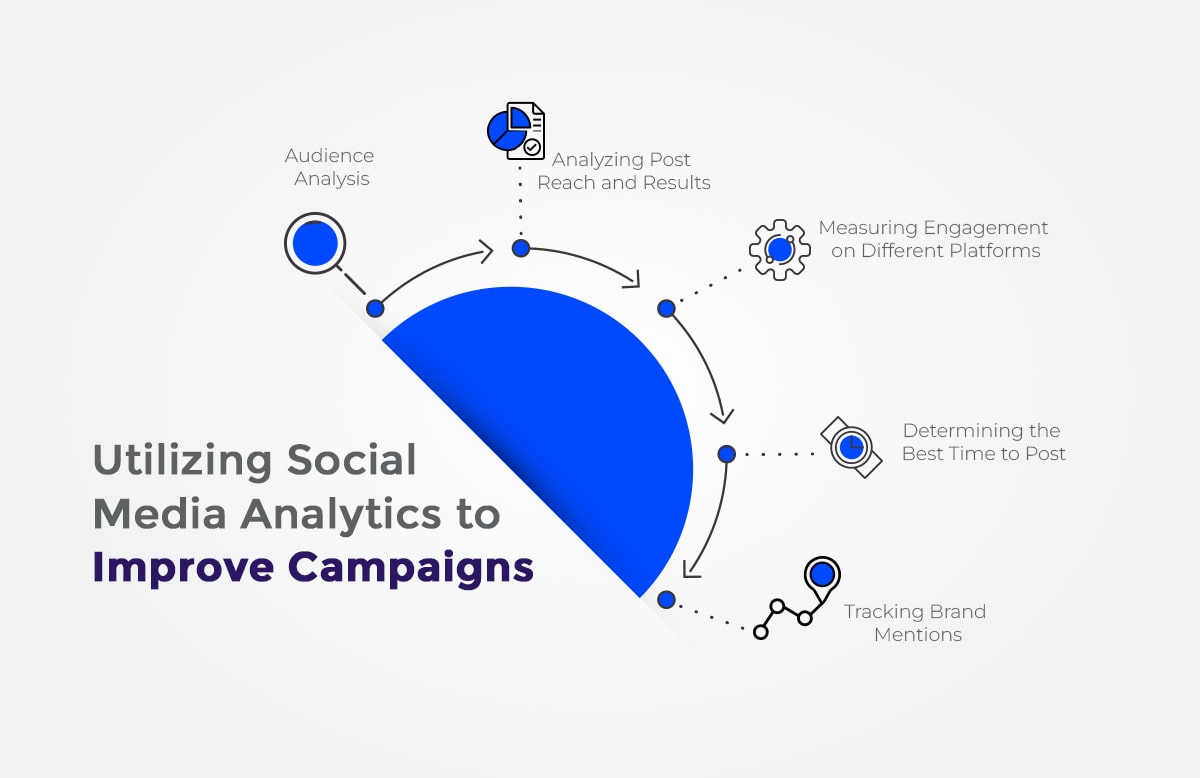
Social media analytics can be a powerful tool for businesses looking to improve their marketing efforts on platforms like Facebook, Twitter, and Instagram.
Some of the main key factors of using social media analytics to improve campaigns include the following
Audience analysis with social media analytics: By analyzing data on demographics, interests, and preferences, businesses can get a better understanding of their target audience and tailor their marketing efforts accordingly.
Analyzing post reach and results: By analyzing data on the reach and results of individual posts, businesses can determine which types of content and campaigns are most effective at driving desired outcomes, such as website traffic or sales.
Measuring engagement on different platforms: By analyzing data on engagement, businesses can determine which social media platforms are most effective at reaching and engaging with their target audience.
Determining the best time to post with social media analytics: By analyzing data on when their audience is most active on social media, businesses can determine the best times to post in order to maximize engagement.
Tracking brand mentions with social media analytics: By tracking mentions of their brand on social media, businesses can monitor how their brand is perceived and address any negative sentiment.
Example of how a business might use social media analytics to improve their marketing efforts
Choose SMART goals
The first step is to set specific, measurable, achievable, relevant, and time-bound (SMART) goals for your social media marketing efforts. For example, a business might set a goal to increase website traffic from social media by 20% in the next quarter.
Identify which platforms to use
Next, the business would use social media analytics to identify which platforms are most effective at reaching their target audience and align with their goals. For example, they might find that their audience is most active on Facebook and Instagram, so they focus their efforts on those platforms.
Get to know your audience
The business would then use social media analytics to gather insights into their audience, such as their demographics, interests, and preferences. This information can inform the types of content and campaigns the business creates.
Monitor user engagement
The business would use social media analytics to track metrics such as likes, comments, and shares to measure the engagement of their content. They can use this data to identify which types of content are most effective at driving engagement and adjust their strategy accordingly.
Track your competitors
The business can use social media analytics to monitor the performance of their competitors on social media, such as their engagement and reach, in order to benchmark their own performance and identify opportunities for improvement.
Monitor your paid ads
If the business is running paid ads on social media, they can use social media analytics to track the performance of these ads, including metrics such as clicks, conversions, and return on investment (ROI). This can help them identify which ads are most effective and optimize their ad spend accordingly.
Automate your reporting
Finally, the business can use social media analytics tools to automate the process of collecting and analyzing data, and create customizable reports to track their progress over time. This can save time and help them stay informed about the performance of their social media marketing efforts.
How locobuzz does Facebook, LinkedIn, Twitter, YouTube, Pinterest, Instagram, and TikTok Analytics
Locobuzz is a social media analytics and customer service platform that provides insights and tools for businesses to track and engage with their audience on a variety of social media platforms, including Facebook, LinkedIn, Twitter, YouTube, Pinterest, Instagram, and TikTok.
On these platforms, Locobuzz offers a range of features and metrics, such as the ability to track brand mentions, identify influencers, measure the performance of marketing campaigns, and monitor customer sentiment.
The platform also provides tools for customer service, such as the ability to respond to customer queries and reviews in real-time.
Overall, Locobuzz aims to provide businesses with the insights and tools they need to understand and engage with their audience on social media, and improve the performance of their marketing efforts
It’s not just limited to doing the analysis to the top social media platforms but it covers a wide range of platforms like Quora and Tiktok as well !
Common Myths and Misconceptions about Social Media Analytics
Social media analytics is only for large businesses?
This is a myth. Social media analytics can be useful for businesses of all sizes, as it can provide insights into the performance of marketing efforts and help businesses understand and engage with their audience.
Social media analytics is only about measuring likes and followers?
While engagement metrics like likes and followers can be useful, social media analytics involves much more than just counting these metrics. It also includes analyzing data on demographics, sentiment, and conversions, as well as identifying trends and opportunities.
Social media analytics is too expensive?
While some social media analytics tools can be expensive, there are also many free or low-cost options available. It’s important to consider your budget and needs when selecting a tool, rather than assuming that all social media analytics tools are out of reach.
Social media analytics is difficult to use?
While some social media analytics tools can be complex, there are also many user-friendly options available. It’s important to choose a tool that is easy to use and understand, rather than assuming that all social media analytics tools are difficult to use.
Social media analytics a one-time effort?
This is a misconception. Social media analytics is an ongoing process that involves regularly collecting and analyzing data in order to inform business decisions and improve performance. It’s important to make social media analytics a consistent part of your business strategy, rather than a one-off effort.
Conclusion
In conclusion, social media analytics is a crucial tool for businesses looking to effectively market themselves on platforms like Facebook, Twitter, and Instagram.
In this complete guide, we have explored key areas where businesses can use social media analytics, such as marketing campaigns, audience understanding, and customer service, and provided tips for selecting the right tool and using social media analytics to inform business decisions.
At Locobuzz, we specialize in social media analytics and customer service. Our platform provides businesses with the insights and tools they need to track and engage with their audience on social media, and improve the performance of their marketing efforts.
If you want to see how we can help your business, check out our demo and see for yourself why we are the experts in social media analytics.
FAQ’s
Which sites & social networks can I monitor?
You can monitor a wide range of social media sites and networks with social media analytics tools, including popular platforms like Facebook, Twitter, Instagram, LinkedIn, and YouTube. Some tools may also allow you to monitor more niche platforms or specific types of content, such as blogs or forums.
What metrics can I track for each social network?
The metrics that you can track with social media analytics tools will vary depending on the platform and the tool you are using. Some common metrics include engagement, reach, clicks, conversions, and sentiment.
What does a dedicated social media analytics platform offer?
A dedicated social media analytics platform is a tool specifically designed for the purpose of collecting and analyzing data from social media networks. These platforms typically offer a wide range of features and metrics, such as the ability to track brand mentions, identify influencers, and measure the performance of marketing campaigns.
What does social media analytics provide for benchmarking & reporting?
Social media analytics can provide a range of data that can be useful for benchmarking and reporting, such as metrics on engagement, reach, and conversions. This data can be used to compare the performance of different campaigns or platforms, or to track progress over time.
Can I benchmark my social media performance against my competitors?
Some social media analytics tools allow you to benchmark your performance against that of your competitors. This can help you identify areas where you are outperforming your rivals, as well as areas where you may need to improve.
Can I use a social media analytics tool for reporting?
Many social media analytics tools offer features for creating reports, such as customizable charts and graphs. These reports can be useful for presenting data to stakeholders, such as management or clients, to demonstrate the performance of your social media efforts.
How to choose a social media analytics tool
When choosing a social media analytics tool, consider your specific needs and goals, the features and metrics offered by different tools, the cost, and any free trials or demos that are available. It can also be helpful to get feedback from others who have experience using social media analytics tools.
What free social media analytics tools are available?
There are several free social media analytics tools available, including Hootsuite Analytics, TweetDeck, and Facebook Insights. These tools typically offer a limited range of features and metrics, but can be a good option for businesses that are just starting out with social media analytics or have a limited budget.

